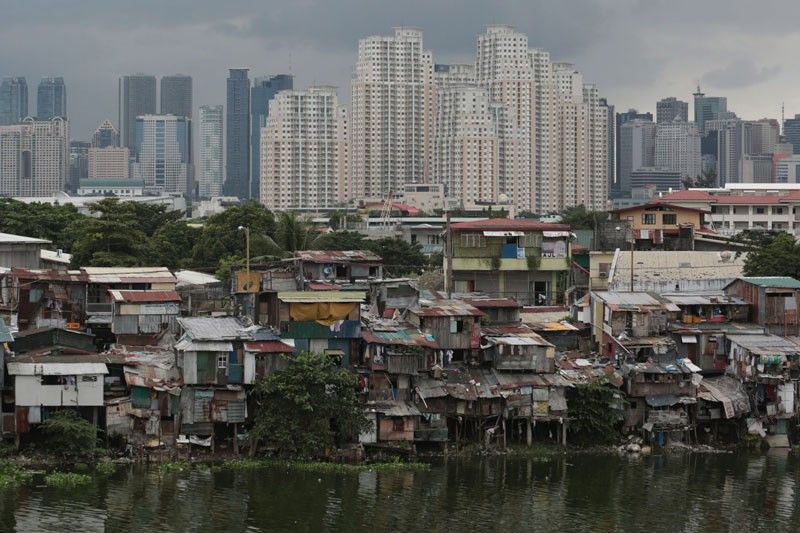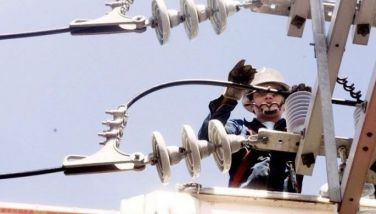Poverty eradication tops ADB’s long-term strategy

MANILA, Philippines — Asian Development Bank (ADB) president Takehiko Nakao yesterday announced 10 priority areas where the bank’s resources would be focused on under its Strategy 2030 which is expected to be completed mid-2018.
Addressing the opening session of the ADB Board of Governors meeting, the head of the international finance institution said the global economic center of gravity is shifting to the Asia and Pacific region as most of its developing member countries (DMCs) have advanced to middle income status but large challenges to development still remain and new ones are emerging.
“Our region has experienced a fundamental transformation. Half a century ago, Asia was the poorest region in the world. Today, the economic center of gravity is shifting to Asia and the Pacific, and almost all our developing member countries have advanced to middle-income status,” Nakao told delegates attending the 51st ADB Annual Meeting.
“Yet, large challenges remain, and new ones are emerging. There is still persistent poverty. We must address rising inequality, growing environmental pressures, and rapid urbanization. Aging in some countries and an increasing youth population in others present opportunities as well as challenges,” he added.
Thus, on top of ADB’s development finance agenda leading up to the next 12 years is eliminating pockets of poverty in DMCs and decreasing income inequality by helping DMCs create quality jobs, promote secondary and tertiary education, expand universal health care, and strengthen social protection programs.
“We will focus on lagging areas and pockets of poverty even in middle-income countries,” he said.
Another area high in ADB’s agenda is helping countries accelerate progress in gender equality by incorporating gender elements in the design and implementation of projects and programs. The bank will also support gender-focused projects in education, health, and financial inclusion.
ADB will also scale up support for climate change and disaster resilience projects and enhancement of environmental sustainability.
“ADB will help countries to achieve their Nationally Determined Contributions under the Paris Agreement. We will invest in the conservation and restoration of natural capital. We will improve the water-food-energy nexus,” said Nakao.
The multilateral bank will also help cities expand sources of funding for the development of its mass transport systems and water sanitation systems with the goal of making cities liveable, resilient and inclusive.
ADB will likewise invest more on rural development and food security by focusing on developing agricultural value chains through investments in rural roads, storage facilities, and mobile connectivity. The use of advanced technologies in farming will be promoted.
The bank will also help governments enhance their capacity to prepare, implement and operate high-quality projects.
Nakao said ADB will also support projects that will strengthen regional cooperation and integration.
“We will build on our experience in subregional cooperation initiatives since the 1990s in Central Asia, South Asia, Southeast Asia, and the Pacific. We will promote regional public goods such as transportation and logistical networks, and protection against communicable diseases. We will support a regional approach to energy security, education, tourism, and financial stability. ADB will cooperate with existing and emerging international and regional initiatives,” he said.
Operations in the private sector will also be strengthened to mobilize private sector resources to meet the region development financing needs. Through its private sector department ADB invests in privately-held and state-sponsored companies across a wide range of industries across Developing Asia.
The last two priority items on the long-term agenda involve strengthening the bank’s role as a provider and facilitator of knowledge and expanding its presence on ground through greater investment in its workforce.
“We will invest in our workforce, promote diversity including gender balance, and ensure a respectful workplace. We will expand our presence on the ground. We will dramatically modernize business processes to speed up our services to clients,” said Nakao.
Extensive consultations, he said, have already been held for the new long-term plan which replaces Strategy 2020 to adapt to the socioeconomic challenges faced by its developing member states.
“Our task ahead is to reinvent ADB and meet the challenges of a transforming Asia and the Pacific,” said Nakao.
These priorities, he said, will be aligned with the international agenda, such as the Sustainable Development Goals and the Paris Agreement on climate change.
Nakao maintains a positive growth outlook for the region particularly for DMCs in the ASEAN region which are growing at a rate close to seven percent.
“In countries like Bangladesh, Cambodia, the Lao People’s Democratic Republic, Myanmar, the Philippines, and Viet Nam, growth continues at 7 percent or even more. At this pace, gross domestic product (GDP) will double in about 10 years,” he said.
- Latest
- Trending



























